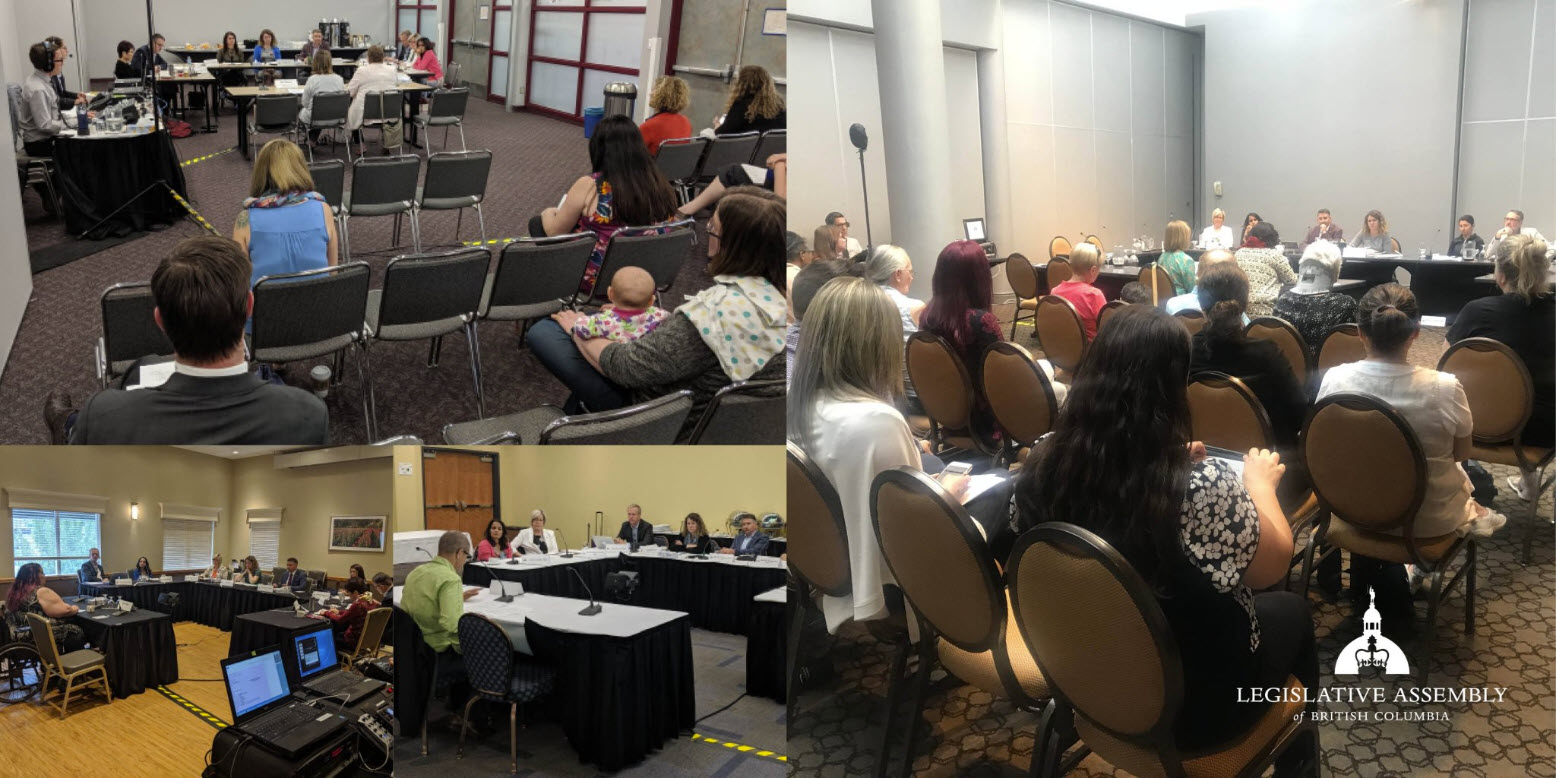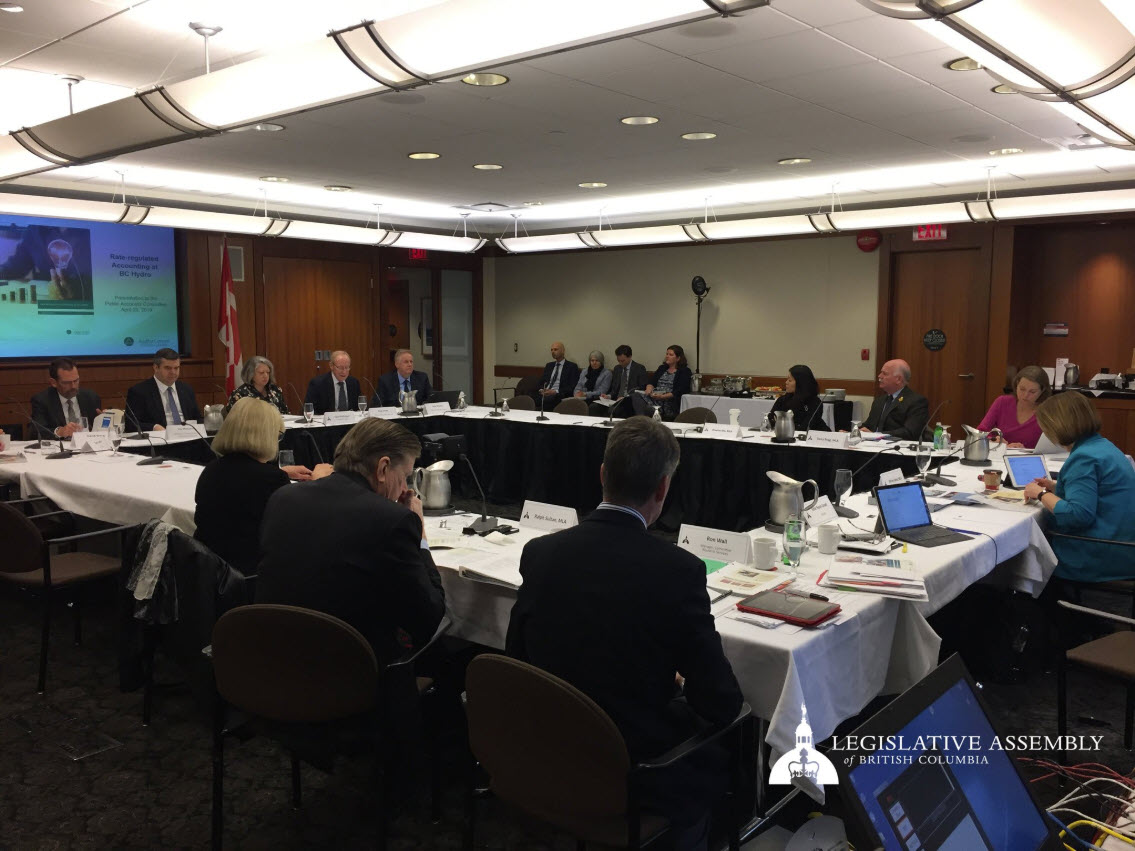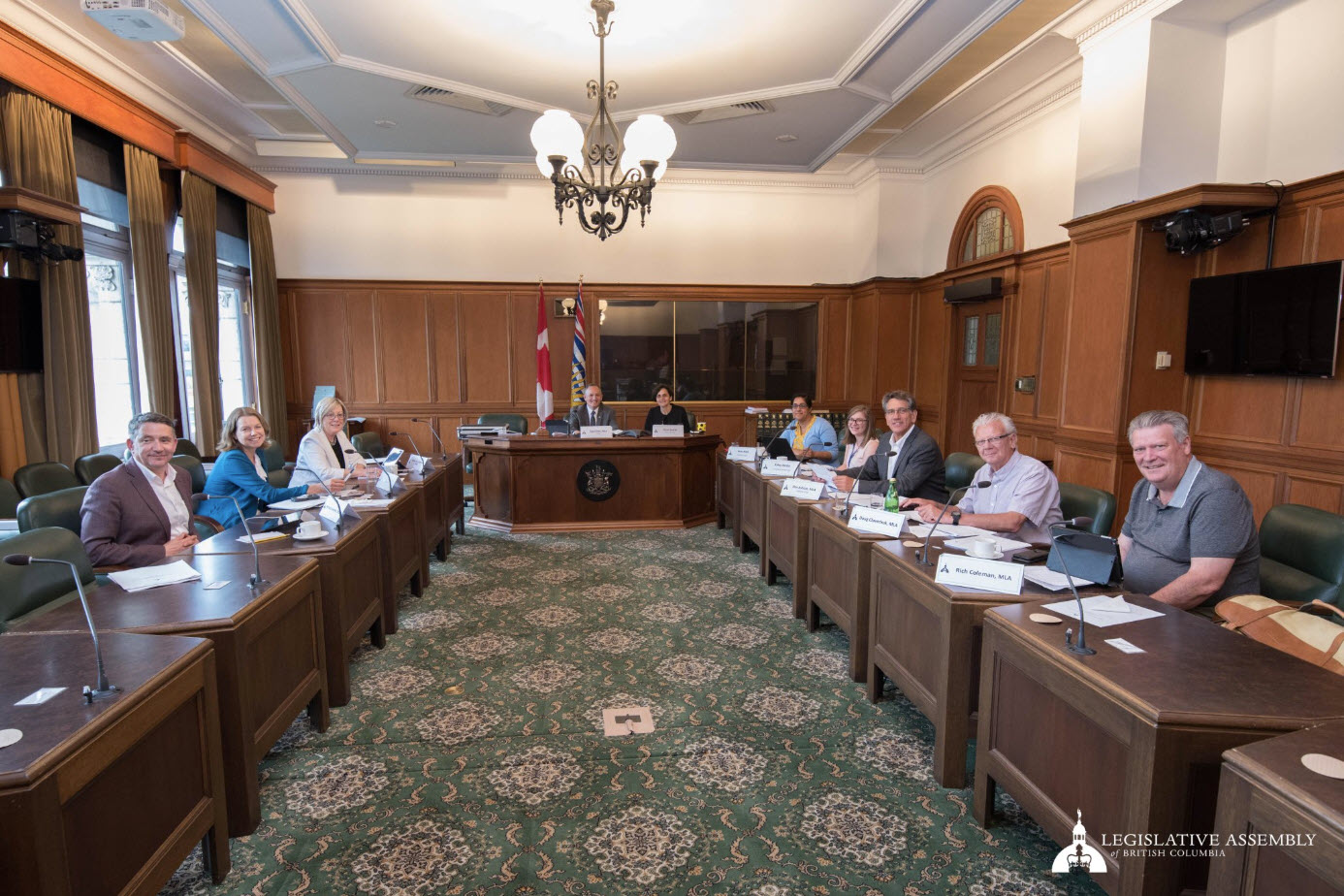While the Committee of Supply is used to debate estimates, and a Committee of the Whole is used to debate sections of proposed legislation (bills), other committees come together throughout the year to discuss social and economic issues of importance to British Columbians. These parliamentary committees are made up of MLAs, and generally do not include either the Premier or Cabinet ministers. Many of these committees have nine MLAs on them, and in British Columbia, committees generally cannot initiate inquiries but must be given their terms of reference by the Legislative Assembly.
There are two types of parliamentary committees:
- Select standing committees that investigate and report on a particular issue for the duration of a legislative session
- Special committees that closely examine a single specific issue and cease to exist once they have presented their final report
The Special Committee of Selection usually determines the composition of all parliamentary committees at the start of a new session. Once MLAs have been appointed to a committee, a chair and deputy chair are elected at its first meeting. The chair is often a member of the governing party and the deputy chair is often a member of the Official Opposition, although this may vary based on the committee (for example, the Select Standing Committee on Public Accounts is traditionally chaired by an Official Opposition MLA with a government MLA being the deputy chair).
MLAs who have an interest in the work of a particular committee, but have not been appointed to that committee, can attend meetings as observers, and may participate in debates. However, they cannot vote on any matter before that committee.



